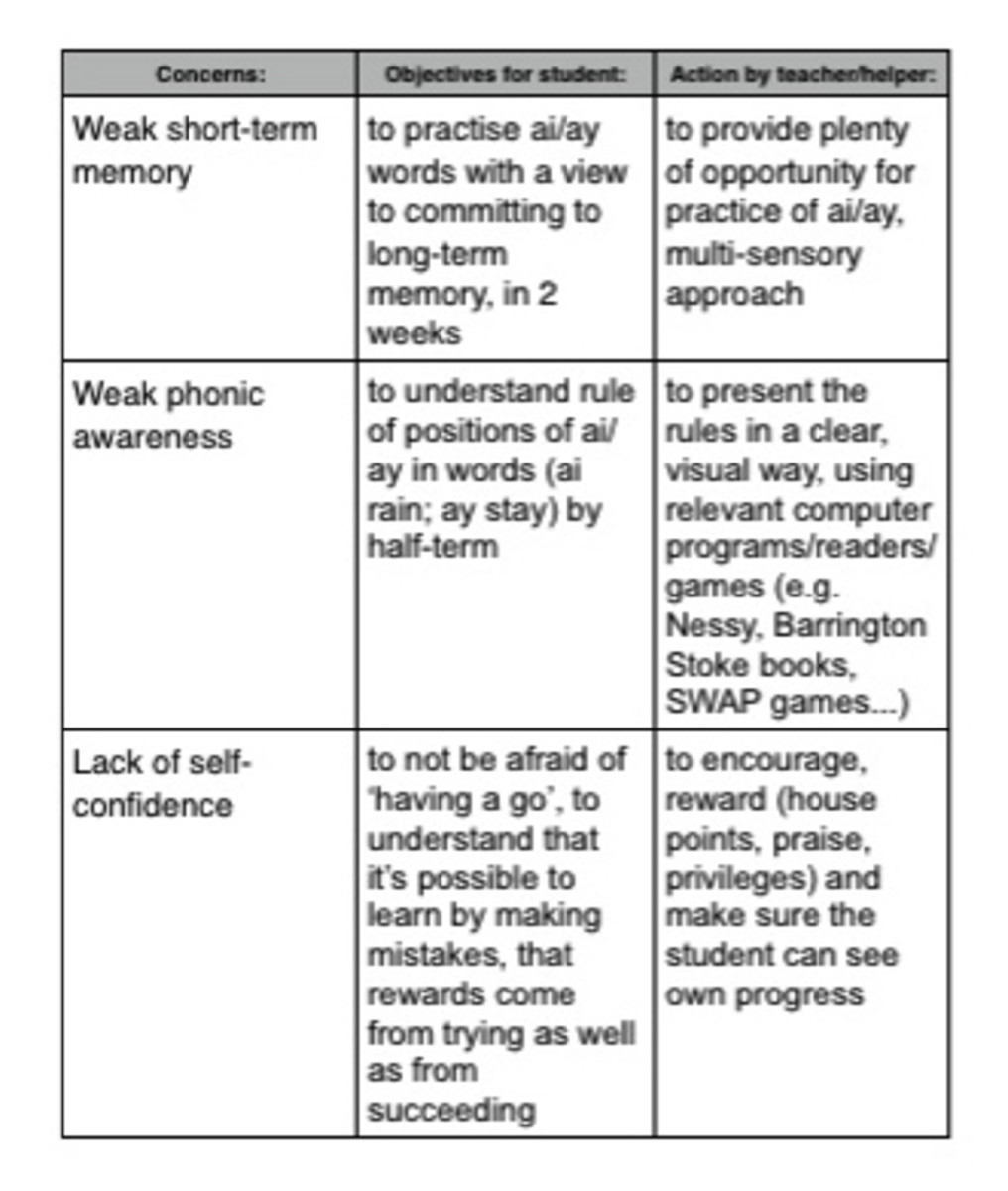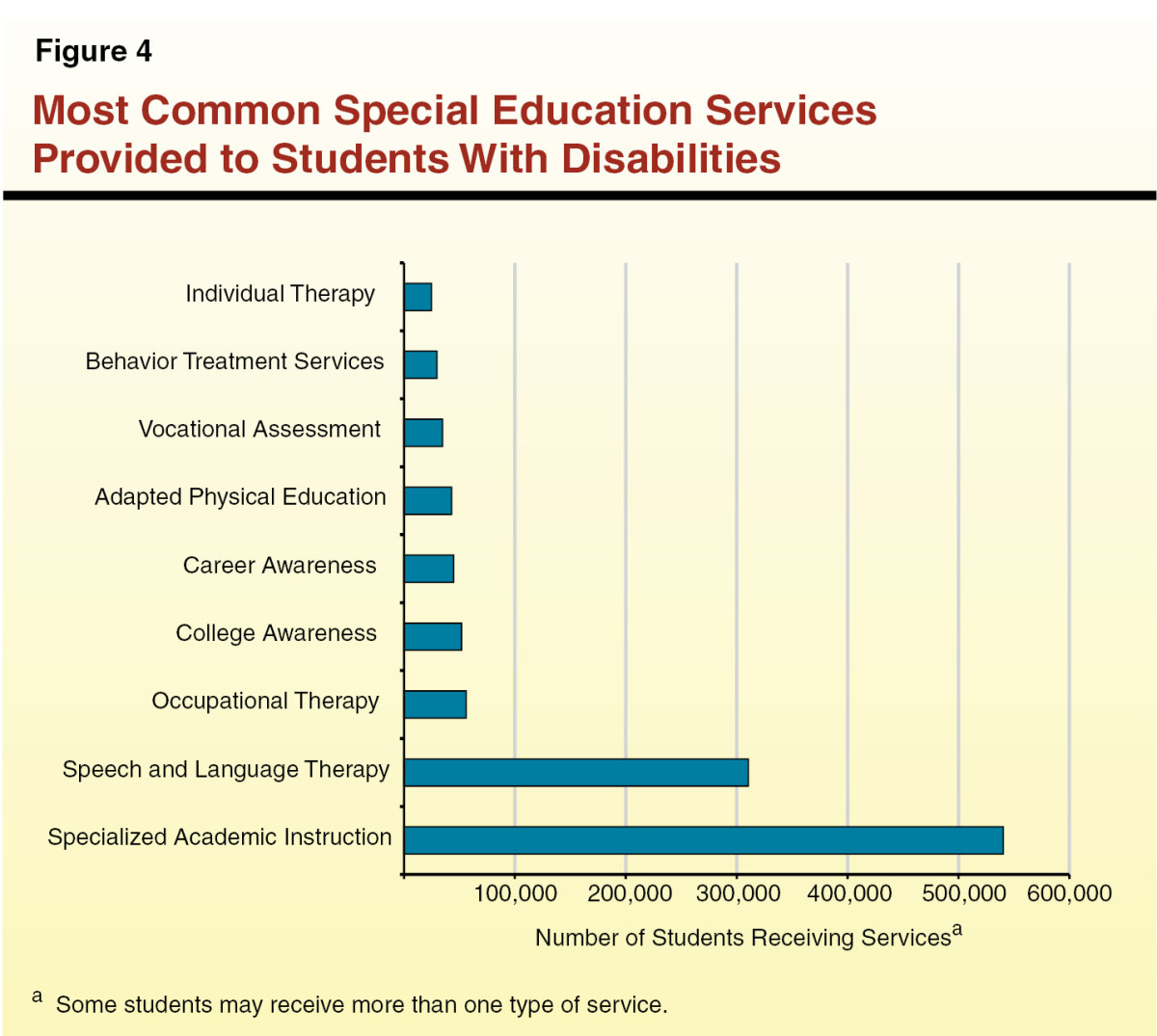Productive Individual Education Plans (IEP) for 2013

For most parents of a child with special needs the Individual Education Plan (IEP) process can be laborious, none productive and exceptionally overwhelming. There are times as a special educator I felt it was unfair to the parent as they were the experts in their children who wanted to have input but did not know how to effectively participate in the IEP process. This article is designed for parents who wish to engage in their child’s IEP process to access the most effective education for their child that is available in public schools.
Science
If a school tries to tell you teaching is an art then run because you are dealing with a school which embraces subjective measures of your child. Subjective measures are nothing more than evaluations based on teacher’s opinions. While I do not agree with tests such as the FCAT or standardize testing a child throughout the school year, I do believe in objective measures.
What is an objective measure? It is really quite simple. The special education teacher or any teacher for that matter should be taking data on your child’s performance in class. For instance there are only three curriculums which have any scientific evidence that they are effective. One of them is the SRA corrective reading series. It has a very controlled vocabulary and no one should rely upon it as the only curriculum but it does have its merits for the beginning reader. As a teacher I could tell every parent in an IEP how many words their child read in a one minute timed session and how many errors that child made. I also conducted an error analysis on each error and determined if there was a flaw in logic which was the genesis of the error. If you are not dealing with a special educator who can speak to you about your child’s performance at parent teacher conferences long before the IEP then you need to ask yourself why?
I also took data twice a week on each child. I charted it and studied trend lines. I added more interventions if necessary and if I was unable to get the child to increase his/her performance I was on the telephone with the parent. That is, the parents I could get on the telephone. You can always keep lines of communication open with the teacher if she/he is open and if not then you have to ask yourself again why not?
So your first question at the IEP is… Is there a Scientifically valid curriculum which proves my child will learn from this material? The FCAT, a test in Florida, does not teach. Education has to begin with teaching before testing.
The second question is… Can I see the data you have taken throughout the year which proves my child has improved with the academic interventions you have used? If not, where is the data?
The third question is..Will you call me immediately if there is a problem?
Make certain the answer to all three questions are placed on the IEP for each subject your child is taught.
Behavioral Plans
IEP sometimes include behavioral plans. In most instances it is better to address this in the IEP setting then to not address it at all. In the simplest terms it is better to strike while the iron is cold. If your child is in a special education class more than likely he/she will be under a behavior modification program which the teacher will use to control the class. In general special education classes are under funded and the student numbers are high. As a special education teacher I had an aid that only showed up to work every thirteenth day to work. I was out number twenty five to one with some children who were banned from the mental institution because of their behavior. I used several behavioral systems within my classroom to manage my students. But if a child had a specific problem like self injurious behaviors I would write a separate plan for that child. In many instances I was running many behavioral programs at once but was very successful extinguishing (eliminating) some children’s self injurious behaviors.
Find out about the behavioral modification plans in the class in advance. I ran a level system in my more severe class but would double down with a great deal of positive reinforcement enforcement. I would never use a level three behavioral plan which means I wouldn’t use hand over hand. Hand over hand could be as simple as me helping a child write. But I did not touch a child for which I did not have a plan in place. Level three procedures are quite controversial. Negative reinforcement could be used but ultimately I found my students had been subject to far worse negative reinforcement in their lives then I was prepared to use on them. So I went to positive reinforcement after they completed the level system.
Behavioral Support Plans
Additional Therapies
Many parents have their children receive therapy at school which is much easier then having them receive it at home. Some parents do both which provides for better generalization. But it is good to speak to the therapists in the IEP and ask then about the settings and the ratios which they will provide their service. In one classroom the therapists would come into my room and do group therapies which were not one on one but more like six on one. Then the therapists expected me to continue the therapy treatments throughout the week as they only saw their clients once a week. School systems are overwhelmed with therapy needs and have few therapists which will work at the rates the school systems are willing to pay. So if your child receives speech, occupational therapy or physical therapy it is best to ask, where, when, how often and what are the ratios.
Technology
There should never be an IEP meeting without a technology assessment. Every child should have the benefit of technology to assist them in learning. Good questions to ask are what technology will be provided for my child. There are two classifications of technology in special education.
The first is low technology. For children with autism, ADHD or other sensory integration issues a simple example would be a visual schedule for the child to remind him or her what they should be doing each day. Another example would be a social story to help the child transition to making friends. These are all low cost low tech items which a school can readily provide.
The second class is high technology. For autism again there is a device called a dynavox which is an augmentative communication device. This device runs about $9000 but is invaluable to families of non-verbal children. Ipads are also high tech devices which have become quite popular for the special education crowd.
Augmentative Communication
Your Goals For Your Child
Finally the actual creation of the IEP, they mass produce these in schools and the ESE departments run through them so quickly parents don’t have any input. You have every right to ask and expect to have your goals for your childs on the IEP. If your child has difficulty putting a straw in his/her juice then you have a right to request that be placed on the IEP. The occupational therapists will address this but you still must ask. If your child has difficulty reading it is reasonable to ask the team how they will scientifically address this and what data collection method they will use. Other goals might include having your child make friends and learn social skills. These are all reasonable requests which your child is entitled to learn in a special education class.
Parents should walk into every single IEP with expectations of how the meeting will go. They can consult an advocate but be wary and make certain the person is an expert in the field. Your advocate has to have a higher level of education then anyone sitting at the IEP table.
If your child has a severe disability it maybe entirely appropriate to ask about wrap around services. Wrap around services means services in the home after the child leaves school. A child with severe behavioral problems needs wrap around services as well as children who are profoundly handicapped. It is entirely appropriate to ask about wrap around services if your child falls into these categories.
Come prepared to the IEP with a list of what you think needs to happen in your child’s Individual Education Plan. For the typical child the school receives about $6000 annually and for the special education student the school receives about $9000. So the school is receiving far more funding for a child on an IEP than they are for the typical child so hold their feet to the fire and have high expectations for your child’s education.
Finally never give up and never surrender. Schools think they know it all but no one is a better expert in your child then you. Have the confidence to follow through. If you are threatened with due process have no fear school systems usually lose. It is an ordeal but it looks worse on the school then on the parent. There should never be an IEP that doesn’t discuss transition of your child from the Special education program to the mainstream/general education program. Make certain you have that conversation and the exact parameters under which the school will transition your child. If your child is in middle school they should have transition plan to adulthood where the child picks a trade and an academic program to follow. No child should be involved in education which is not goal oriented. And every parent needs to evaluate the feasibility of the programs in place to help their children achieve those goals. As I said to one parent I advocated for this year. You can’t trust the school to do their job so you must do your job as a parent at the school and hold them accountable. They are after all public servants which you pay.
And always make certain you are the last person to sign the IEP. If you disagree with anything written on the IEP draw a line through it and initial it. While you can not add anything at that point you can certainly take goals which you do not agree with off the IEP. No goals, no need for special education any longer. It is the quickest way to mainstream your child without consent of the school. Remember it is your consent the school needs. It is your child, they serve you and you know what is in the best interest of your child.
Related Links
- What Is Wrong With Him?
An article about how the USA government ostracizes disabled children especially those with rare disorders and Autism in America. - Speech Interventions for Children with Autism
One parent's experience with providing Beckman oral motor exercises for her child with Autism. - Home Schooling Children with Autism.
Tips for home schooling and providing error correction analysis within the home setting. - Success For Children with Attention Deficit Hyperactivity Disorder
For the purposes of this article I have provided guidelines for parents because parents have the most vested interest in reading and following through. I believe parents of children with ADHD need supports through their communities and schools, assis - How to Get Your Child to Sleep In Their Own Bed
An article about how to get your child to sleep in their own bed. - The Shame of USA Education Nation: The Silent National Education Emergency Crisis…Childre
A summary of continued discriinatory policies by Barack Obama against children with special needs especially those with Autism his Educational Program Race to the Top. - Autism Global Phenomena
Analyss of Autism as a Global Phenomena. - How to Help Children with Autism Cope with Death and Loss of A Family Member.
How to help a non verbal child to cope in grief after the death of a family member. - Infantile Autism
How to identify signs and symptoms of infantel autism. - Does More Standardize Testing Yield Higher Student Achievement?
An article nalysize whether standardize test actually yield higher performing students and the cost benefiot analysis of paying for such tests. - You Don’t Count!!!: The Four Caste System in the United States
A summary of the cast system in the United States and how it has divided America and been particularly difficult on single mothers of disabled children.








